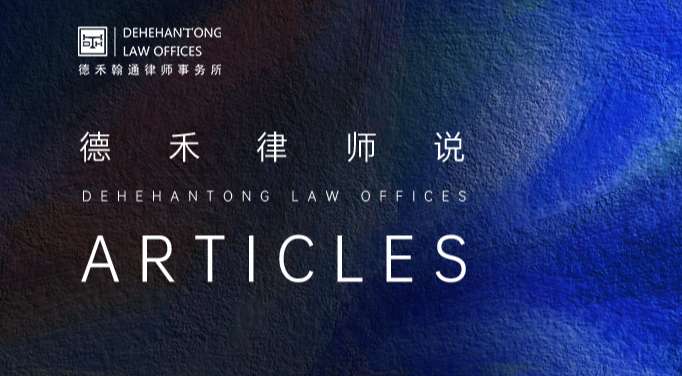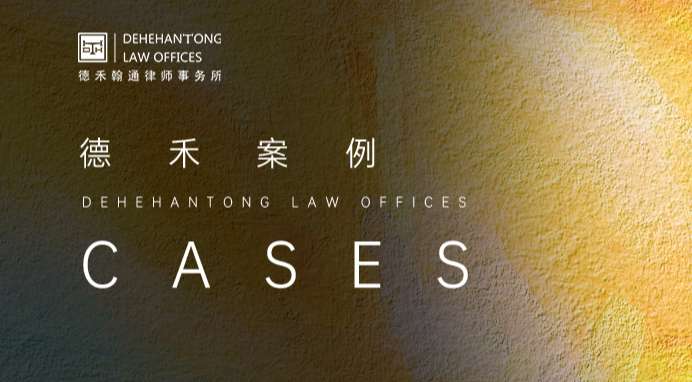The truth behind the administrative regulatory measures taken against private equity fund managers under the management of well-known artists
01. Incident Report: A private equity fund associated with a well-known artist has recently been punished
(1) The Beijing Securities Regulatory Bureau issued a centralized notice on the violations of four private equity institutions
On April 23, 2025, the Beijing Securities Regulatory Bureau issued a warning letter to four private fund managers within its jurisdiction at one time. Among them, Beijing Ganxiang Haiquan Investment Management Co., LTD. (referred to as "Ganxiang Haiquan"), which is actually controlled by the well-known male star Hu Haiquan in the entertainment industry, was once actually controlled (although it has now withdrawn its shareholding at the industrial and commercial level). However, Beijing Haina Baiquan Investment Fund Management Co., LTD. (referred to as "Haina Baiquan"), which is still shown as the actual controller in the registration information of the Asset Management Association of China, is also included.
(2) Details of violations by private equity institutions have been exposed
According to Article 4 of the Interim Measures for the Supervision and Administration of Private Investment Funds (CSRC Order No. 105) : Private fund managers and institutions engaged in private fund custody business, as well as institutions engaged in private fund sales business and other private fund service institutions engaged in private fund service activities, shall be conscientious in their duties and fulfill the obligations of honesty, credit, prudence and diligence when managing and using private fund assets. Private equity fund practitioners should abide by laws and administrative regulations, and adhere to professional ethics and behavioral norms.
When managing and utilizing the private equity fund assets, Ganxiang Haiquan failed to fulfill his obligations of honesty, credit, prudence and diligence with due diligence. In the practical operation of private equity fund management, if there is a failure to fulfill this obligation within the industry, it often manifests in multiple aspects. For instance, in the investment decision-making stage, some institutions fail to conduct thorough and rigorous research and analysis, and make hasty decisions based merely on limited information or personal experience. In terms of risk control, some institutions have not established a complete and effective risk early warning mechanism and response strategy. When the market environment undergoes adverse changes, it is difficult for them to take effective measures promptly to control risks.
The disclosure of the above information, on the one hand, reminds all managers to pay attention to the management norms of core obligations and strictly adhere to the professional standards of "honesty, credit, prudence and diligence" when managing private fund assets. On the other hand, the Manager also needs to be vigilant of the civil risks that may arise therefrom : The absence of the above basic obligations may give rise to civil legal risks such as damage to the interests of investors.
According to Article 16 (1) of the Interim Measures for the Supervision and Administration of Private Investment Funds (CSRC Order No. 105) : When a private fund manager sells private funds on its own, it shall assess the risk identification ability and risk bearing ability of investors by means of questionnaire survey, etc., and investors shall commit in writing that they meet the conditions of qualified investors; A risk disclosure statement should be prepared and signed and confirmed by the investors.
In addition to violating the fourth provision mentioned above, Haina Baiquan also violated the first paragraph of Article 16. That is, during the fund raising period, the risk identification ability and risk-bearing capacity of investors were not evaluated. If some investors participate in investment without any understanding of their own risk tolerance, it not only goes against the foundation of private equity fund investment, but also will lead to investment losses once the market fluctuates. These investors may plant the hidden danger of litigation disputes with the management due to their inability to bear the investment losses.
As a fund manager who adheres to the principle of "fulfilling the trust of others with loyalty", violating the core obligation management norms, failing to verify investors as required, not assessing investors' risk tolerance, and readily accepting investors' investments not only disrupts the market regulatory order This may lead to unqualified investors participating in the purchase of high-risk products that do not match their own risk tolerance, increasing the legal risk of causing significant losses to investors.
02. Industry Insight: The Red Line for Private Equity Compliance under Stricter Regulation
(1) Compliance discussions triggered by star venture capital benchmarks
Hu Haiquan has been deeply involved in the entertainment industry for many years. Not only has he achieved remarkable success in the music field, but he is also a representative star figure in the early days of cross-border venture capital. As early as 2014, he keenly seized the opportunities in the investment field and initiated his own private equity investment layout. Since then, he has successively established nine funds, with investment scopes covering multiple popular fields such as strategic emerging industries, environmental protection, and the Internet. The management scale once reached over 1 billion yuan.
In June 2023, Haina Baiquan was issued a warning letter by the Beijing Securities Regulatory Bureau for "failing to truthfully disclose major information that affects investors' rights and interests". Apart from the issue of information disclosure, Haina Baiquan was also forcibly executed by the court for over 21 million yuan in an enforcement case.
According to data from Qichacha, Hu Haiquan withdrew from the list of shareholders of Haina Baiquan in February 2022. Subsequently, his shares were held by Yin Chengshuang (40%), Wang Wenzhong (30%), and Wang Yu (30%). However, information from the Asset Management Association of China shows that Hu Haiquan still serves as the legal representative and chairman of the company, and there is a situation where the information disclosed by the Asset Management Association of China does not match the information registered with the industry and Commerce Department.
As a star venture capital benchmark, Hu Haiquan's private equity funds have been warned by regulatory authorities, which also serves as a wake-up call for other private equity institutions controlled by cross-disciplinary individuals: they urgently need to pay attention to and enhance their professional private equity management capabilities and awareness of compliance risk control. Although the status of a star can attract a large amount of attention and funds in the early stage by relying on the heat effect it forms in the entertainment industry, if it wants to stand firm in the market for a long time, there is still a long way to go for it to improve its own management and operation level as well as compliance awareness. Otherwise, it will be difficult to adapt to the increasingly strict regulatory environment and complex and changeable market demands.
(2) Special inspections on private equity funds have been put on the agenda
Recently, the regulation of private equity funds has entered a "refined" stage. The securities regulatory bureaus in Shanghai, Shandong, Ningbo and other places have taken actions one after another, simultaneously conducting spot checks or self-inspections of private equity funds. The Shanghai Securities Regulatory Bureau mainly focuses on violations in the fundraising process, strictly investigating issues such as disguised principal and return guarantees, entrusting unqualified third parties to introduce clients, and the formality of investor qualification reviews. The Shandong Securities Regulatory Bureau requires private fund managers to verify item by item against the annual inspection list, with a particular focus on the consistency between contract terms and actual operations. The Ningbo Securities Regulatory Bureau has conducted a comprehensive inspection of private equity institutions, with a focus on core areas such as suitability management in the fundraising process, risk control in the investment process, and the authenticity of information disclosure. This series of regulatory actions covers all aspects of the private equity industry, aiming to comprehensively rectify the market order, eliminate industry chaos, and promote the private equity industry to develop in a more compliant and healthy direction.
(3) Legal Consequences of Compliance Failure and Industry Warnings
According to Article 33 of the Interim Measures for the Supervision and Administration of Private Investment Funds, a warning letter, as an administrative regulatory measure, although not an administrative penalty, serves as a wake-up call. Once an institution repeatedly violates regulations or turns a deaf ear to the warning letter and refuses to rectify, it will face more severe penalties such as being ordered to correct, fined, and banned from the market.
The administrative regulatory measures taken by the China Securities Regulatory Commission include:
Order to rectify: Require private fund managers and other relevant institutions to rectify the existing violations to meet the requirements of laws, regulations and supervision.
· Regulatory talks: Meet with private fund managers and their employees, etc., to have talks about violations, require them to provide explanations, and urge them to take measures to correct them.
· Issue a warning letter: Issue a written warning to the violation, point out the existing problems and possible consequences, and require the relevant institutions and personnel to pay attention and make rectifications.
· Public condemnation: Publicly criticize private fund managers and related responsible entities that violate regulations through relevant information service platforms and other public channels to serve as a warning and deterrent.
· Record in the integrity file of the securities and futures market: Record the violations of private fund managers and their employees in the integrity file, which will serve as the basis for regulatory authorities to implement differentiated supervision and have an impact on their subsequent business operations, etc.
03. From a lawyer's Perspective: Three Lines of Defense for Compliance Management of Private Equity Funds
(1) Full-process control of investor suitability management
Investor suitability management is the first line of defense for the compliant operation of private equity funds and runs through the entire process of fund raising. In actual operation, the manager needs to comprehensively understand the investors' financial status, investment experience, risk preferences and other information through carefully designed questionnaire tests during the fundraising stage.
This time, Haina Baiquan failed to assess the investors' risk identification ability and risk-bearing capacity during the fund raising period. This behavior has rendered the key link of investor suitability management ineffective and violated the relevant laws and regulations. In practice, some private fund managers go through the motions in investor suitability management. They simply ask investors to fill out very basic information questionnaires or deliberately recommend high-risk fund products to investors without considering their actual risk tolerance. The relevant actions not only harm the interests of investors, but also bring huge legal risks to the fund managers themselves. Private fund managers must attach great importance to investor suitability management, establish and improve management systems and processes, and ensure that every link is strictly carried out in accordance with the requirements of laws and regulations.
(2) Specific fulfillment of the duty of diligence and responsibility
The duty of diligence and responsibility is one of the core obligations of private fund managers. It requires managers to fulfill their duties of diligence, prudence and responsibility in all aspects such as investment decision-making, risk control and post-investment management, in order to protect the interests of investors. In the investment decision-making process, the manager should establish a scientific investment research process, conduct in-depth research on market dynamics, industry trends and the fundamentals of enterprises, and make reasonable investment decisions. Meanwhile, the manager should also closely monitor the operating conditions of the invested targets, be able to promptly identify potential risks and take reasonable and effective measures.
This time, Ganxiang Haiquan failed to fulfill its duties with due diligence when managing and utilizing the private equity fund assets. Fulfilling the obligations of honesty, credit, prudence and diligence may involve multiple aspects of issues. For instance, during the screening stage of investment targets, insufficient investigations might not have been conducted. Inadequate understanding of the financial status, business risks, market prospects, etc. of the invested targets led to mistakes in investment decisions. Or perhaps there is no effective risk early warning mechanism or response strategy established in terms of risk control. When adverse changes occur in the market, measures cannot be taken in a timely manner to reduce losses, etc. To reduce the risks of performing duties, private fund managers should establish and improve internal control systems, clarify the responsibilities and authorities of each department and position, and strengthen supervision and management over key links such as investment decision-making, risk control, and post-investment management.
(3) The authenticity and timeliness of information disclosure
Information disclosure is an important basis for investors to understand the operation of funds and make investment decisions. Private fund managers shall, in accordance with the provisions of laws, regulations and the fund contract, disclose to investors in a timely, accurate and complete manner information such as the investment operation situation, financial status and risk status of the fund. For major matters that may affect investors' decisions, such as abnormal use of fund assets, major lawsuits, changes in equity structure, etc., disclosures need to be made more strictly in accordance with regulatory requirements and contractual agreements.
The problem of the private equity institution under Hu Haiquan failing to truthfully disclose major information that affects investors' rights and interests is suspected of infringing upon investors' right to know and decision-making. In practice, some private fund managers have the situation of "selective disclosure", that is, they only disclose information that is beneficial to themselves, conceal unfavorable information or disclose information untimely, inaccurate or incomplete, which leads investors to make wrong decisions on fund disposal due to their inability to fully understand the operation of the fund. This kind of behavior violates the basic principles of information disclosure. To a large extent, it also undermines the fairness and justice of the market and harms the interests of investors. Private fund managers should establish a regular compliance review mechanism, strengthen the examination and control of information disclosure content, and ensure that the disclosed information is true, accurate, complete and timely.
Recommended Information
-
ArticlesA Brief Analysis of Relevant Legal Issues of Overseas Direct Investment: Taking the Acquisition of a Certain Overseas Enterprise Project as an Example2025-04-25
-
HonorsDehehantong has been included in the list of "Brand Influence Law Firms in the 'Premium Legal Services Brand Guide (2024) : Capital Market - Debt Financing Field'" by Lawxinshe2025-04-25
-
HonorsDehehantong was selected for the "2025 ALB China Employer of Choice" list2025-04-23
-
UpdatesThe junior eagles spread their wings, gathering strength and ready to go | The 2025 Dehehantong "Junior Eagle Program" came to a successful conclusion2025-04-22
-
UpdatesThe establishment and unveiling ceremony of the Dehe Hantong Enterprise Relief and Restructuring Business Center was successfully held2025-04-22















